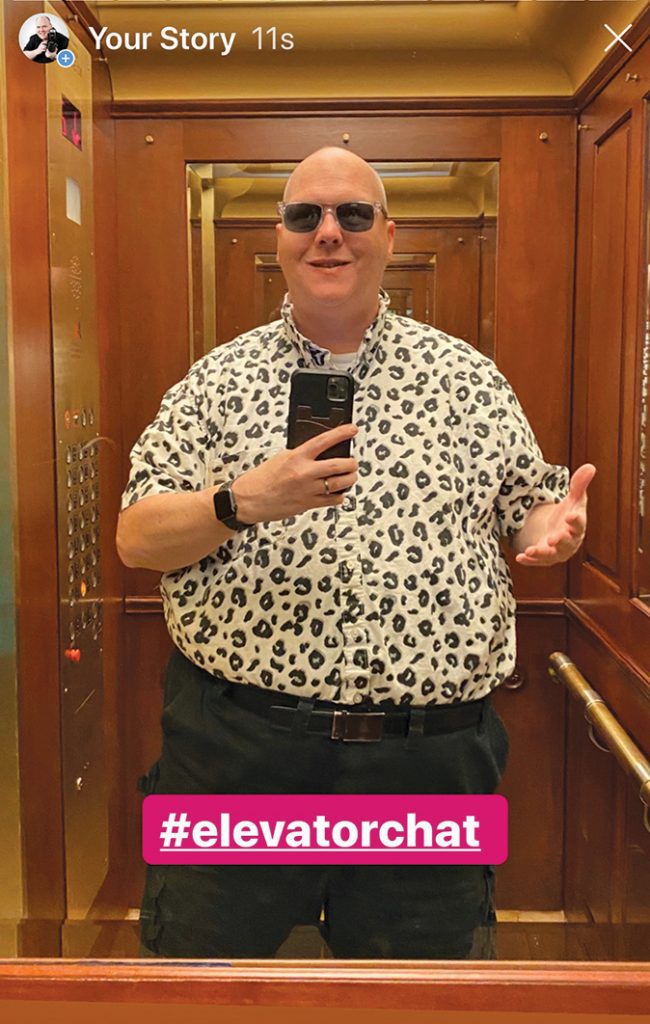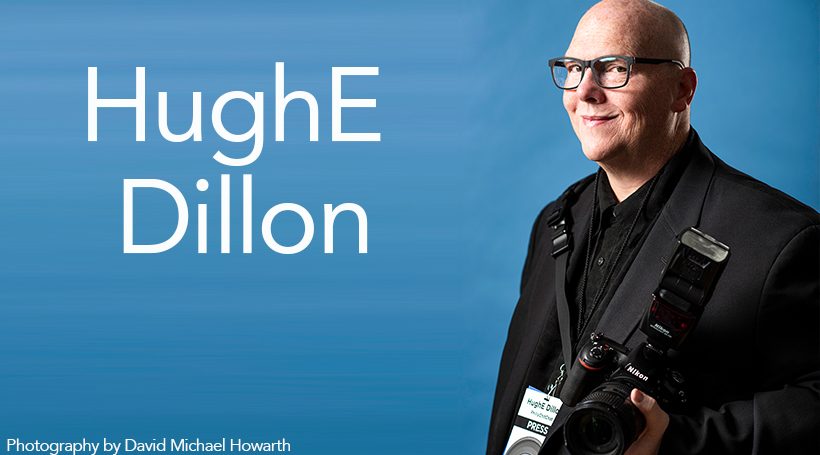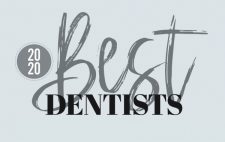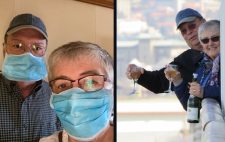If something amazing is happening in South Jersey or Philly – like someone uber famous is spotted in town filming or maybe just hanging out – the chances are good that HughE Dillon will be on the scene. He calls himself paparazzi, but he’s not that kind of paparazzi. This Cherry Hill native is known for always having the hottest pic. Actually, you could say it isn’t officially hot until he posts it on social media (where he has almost 60,000 followers).
When he tells the story of his life, HughE Dillon tends to jump around a bit. Today, the 56-year-old is a familiar face in the region – even though his face is usually hidden behind his camera. Dubbed the city’s “lone paparazzi,” Dillon has built a flourishing career photographing and writing about Philadelphia’s famous and powerful residents and visitors.
If there’s a celebrity in town, you can bet Dillon knows about it, and his dispatches appear regularly on media outlets like CBS Philly and Fox 29. He’s active on social media, with close to 60,000 Twitter and Instagram followers, and his blog, Philly ChitChat, has been one of the most popular local websites for society news since it launched in 2007.
But before all the limelight, Dillon was just a kid growing up in Cherry Hill.
“My mom and dad were raising 7 kids, and I was the second oldest,” Dillon recalls. “I always had a camera with me. Even when I was a little kid, at my dad and stepmom’s wedding, I had a camera in my hand. I think I was just capturing memories so we could revisit them later and share those moments and tell those stories.”
As he entered young adulthood, things got a bit rocky for the budding photographer. When he was 19, he realized he was gay and came out to his family.
“They really didn’t understand,” he says, noting that homosexuality had only been off the books as a mental illness for 7 years at the time. Dillon and his parents hit a rough patch, and it sent him into a downward spiral that culminated in more than one suicide attempt.
“I was living at home, but I wasn’t following the rules they laid down, like ‘get home by 2 am,’” he says. “I was staying out all night. They asked me to stop and I didn’t, so eventually they asked me to move out. It was many years before we talked again.”
Dillon spent a lot of time in bars and filled his nights with wild parties. “I just felt braver when I drank. I could just work out my anger,” he says. “But I was a mean drunk. I ended up homeless, kicked out of my apartment. I was squatting in Barrington; I had no place to live. I just fell into alcoholism and drugs. I think I was having a hard time coping with the separation from my family. I failed out of college. I just couldn’t get it together. I was trying to figure out my path.”
By this time, the HIV/AIDS epidemic was in full swing. For Dillon, seeing a close friend suffer with the disease was a wake-up call.
“My friend was dying of AIDS, and his family wouldn’t let me see him because I was drunk all the time,” Dillon says. “I knew I had to get sober if I was going to be there for him. It was 1991, I was 28, and I just remember thinking, ‘When will this stop?’”
But it did stop: Dillon got into Alcoholics Anonymous, and the world opened up.
“I saw how rewarding sobriety was, and suddenly there was a future,” he says. He stayed sober, met the man who’d become his husband (and who suggested he stylize his first name as HughE), and took a civil-service test that told him he should be a paralegal. He landed a job at a high-powered law firm, which eventually sent him to New York City for 18 months to work on a case. It was there he found his true calling.
“I read the gossip pages and always knew where the parties were,” Dillon says. “I got hooked on people’s interest in celebrities. I returned to Philly and became a professional celebrity photographer.”
Dillon would nab photos of the famous people who passed through the city, selling them to the news wire services and the glossy magazines. He built an intricate network of connections that ensured he always knew who was going to be where, and when.
“I worked on educating the business and restaurant owners in the city,” Dillon says. “I told them, ‘You can tip me off that a celebrity is eating at your place. If you let me know, I’ll get those photos and run them in People Magazine.’ I had seen how it was done in New York. Celebrities want that, too, because everyone is constantly trying to raise their profile.”

HughE Dillon frequently chats to his Instagram followers from the elevator in his apartment building.
While Dillon has photographed and written about countless celebs who’ve lived, worked and played in Philadelphia and South Jersey, he’s never been known as the “take-down” brand of paparazzi.
“People have asked me why I didn’t ever write ‘gotcha gossip,’” he says. “It’s because that kind of thing makes you well-read for a 24-hour news cycle, but how you made someone feel lasts a lifetime. I have to live with myself.”
Instead, Dillon’s created a new kind of celebrity coverage. He’s a paparazzi, sure, but on his own terms.
“I was a paparazzi in New York City, and nothing gets more vicious or mean than that,” he says. “In Philly, I try to ask.” Instead of getting in a celebrity’s face, Dillon’s polite and respectful. He recalls a time when Demi Moore was in town filming a project, and he was told the actress was having dinner at a well-known restaurant.
“She comes out with Parker Posey, who I actually didn’t recognize,” Dillon laughs. “So, I ask [Posey] to move aside – I said, ‘Demi, let me tell you something. I’m going to be tipped off about where you are constantly. Give me one good shot, and I won’t bother you for the six weeks you’re here.’ So she did, and it worked out to her benefit, because a couple weeks later she was at The Continental with Ashton Kutcher and two of her kids on Mother’s Day. I got the tip and told the person, ‘I’m sorry, I can’t do it.’ I have to live by my word. I believe in karma.”
Eventually Dillon rebuilt his relationship with his parents, too, and today the family is close again. “When they met my husband, my dad really liked him,” Dillon says.
He’s expanded his photography repertoire, now shooting much more in Philadelphia than just the city’s celebrity visitors. Dillon is a constant presence at charity events and society functions, and you don’t have to be famous to become his focus. “When I started, I set out to photograph people just like me,” he says. “I wanted everyone to feel special.”
As Dillon’s platform gets larger, he’s grown more and more determined to use it for good.
On his social media and the Philly ChitChat blog, Dillon is devoted to covering as many charity events – both large and small – as he can. His efforts to give back to the philanthropic community by bringing them publicity haven’t gone unnoticed, nor has his willingness to be open about his struggles with mental health and his attempts to end his life. In the fall of 2015, the American Foundation of Suicide Prevention honored Dillon with its Lifesaver Award.
“I love that mental health is talked about now,” Dillon says. “I want people to know that life does get better. I didn’t know about these charities. If I’d just read about AA or the Karen Foundation, if I’d only known about Project Home, then maybe I could’ve saved my life sooner. I think that’s why I’m really drawn to promoting these charities.”
Dillon shows no signs of slowing down, but he does feel like his own image as a public figure in the Philadelphia region is shifting a bit, and that’s a good thing.
“I purposely trained Philadelphia to call me a paparazzi,” he says. “I knew people would start connecting paparazzi and HughE Dillon. It worked, but now I kind of cringe. People are excited when they introduce me to celebrities as ‘our paparazzi,’ but now I’m trying to get them to call me the ‘society photographer.’”
Whatever they call him, Dillon knows people are listening, and he doesn’t take that for granted. “I know that people pay attention to what I say, and I know I have an impact,” he says. “I’m grateful. I am so appreciative that people allow me to take their photos. They’re the characters in my storytelling.”














